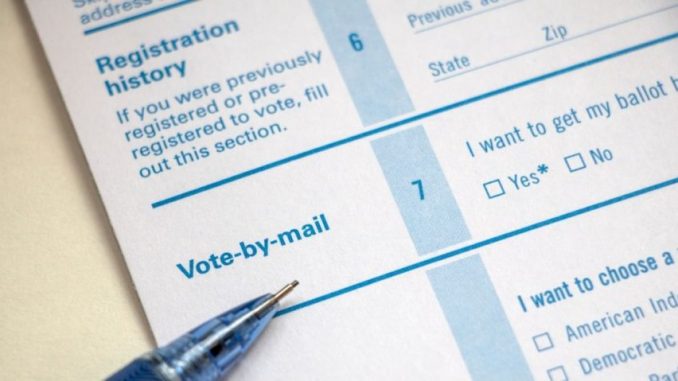
As America grapples with concerns over fraud in its elections, a California case illustrates the extent to which some have been accused of trying to corrupt the system.
In this case, two men are accused of submitting more than 8,000 fradulent voter registration applications in Hawthorne, California, according to the criminal complaint against them.
In a 41-count criminal complaint, Carlos Antonio De Bourbon Montenegro, 53, and Marcos Raul Arevalo, 34, were charged with voter fraud after allegedly cooking up a scheme to try to register 8,000 “fictitious, nonexistent or deceased” voters to be sent mail-in ballots, the Los Angeles Times reported.
The men submitted “thousands of fraudulent voter registration applications on behalf of homeless people,” according to a Los Angeles County District Attorney’s Office news release.
The goal of the effort was to get Montenegro elected mayor of Hawthorne, according to the complaint, which alleged the two men “worked with another person and persons whose identity is unknown.”
TRENDING: ‘MasterChef Junior’ Star Ben Watkins Dead at Age 14
As the ballot applications began to flow between July and October, they raised the suspicions of elections workers, said Dean Logan, L.A. County’s top election official.
As a result, although at least 29 ballots were actually sent out as part of the scheme, none were counted, he said. While some politicians and pundits have alleged voter fraud on a large scale in the 2020 election, there is no proof of widespread malfeasance that affected the results.
Montenegro was also charged with falsifying names, addresses and signatures on nomination papers to run for mayor.
“What this does is it illustrates that election officials here as well as across the country take these issues very seriously,” Logan said.
The vastness of the alleged scheme in a relatively small city also raised a red flag. The 86,000-person community has about 44,000 registered voters, the Times reported, citing the L.A. County Registrar’s office.
Not only did a 20 percent spike in voters make officials take notice, but the applications contained Social Security numbers that were often either identical or similar, and many used the same address, which was that of Montenegro’s home, authorities said.
“We tracked where those voter registration forms were coming from and we notified the [California] Secretary of State and the district attorney’s office,” Logan said.
“I think that this is an example of how the system is supposed to work, that if you see something and something is suspect, you report it and we investigate it,” he added.
“In this case, it was stopped before any harm to the election could happen.”
Both men have been charged “with one count of conspiracy to commit voter fraud, eight counts of voter fraud, four counts of procuring and offering a false or forged instrument and four misdemeanor counts of interference with a prompt transfer of a completed affidavit,” according to the district attorney’s office news release.
“Montenegro faces an additional 10 counts of voter fraud, seven counts of procuring and offering a false or forged instrument, two counts of perjury and five misdemeanor counts of interference with a prompt transfer of a completed affidavit.”
If convicted on all charges, Montenegro could spend up to 15 years and eight months in state prison, while Arevalo could spend up to seven years behind bars.
